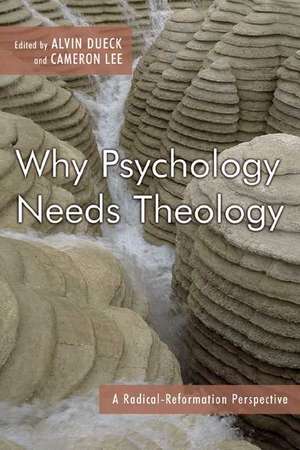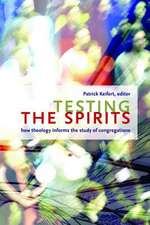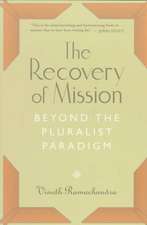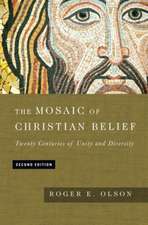Why Psychology Needs Theology
Editat de Cameron Lee, Alvin Duecken Limba Engleză Paperback – 3 iul 2005
Preț: 150.06 lei
Nou
28.72€ • 29.67$ • 23.90£
Carte disponibilă
Livrare economică 04-18 martie
Specificații
ISBN-10: 0802829074
Pagini: 206
Ilustrații: black & white illustrations
Dimensiuni: 152 x 228 x 17 mm
Greutate: 0.33 kg
Editura: William B. Eerdmans Publishing Company
Locul publicării:United States
Textul de pe ultima copertă
In the first part of the book, Nancey Murphy explores the core assumptions of psychology from the vantage point of her expertise in the philosophy of science. Psychology needs theology and ethics, she argues, to help it address the question of what constitutes a good life. Taking an Anabaptist, or Radical-Reformation, perspective that emphasizes Jesus' vulnerable love for his enemies and renunciation of power, Murphy challenges psychology to take seriously the goodness of self-renunciation.
In the second part of the book, other scholars extend and challenge Murphy's model, discussing such topics as gender and culture. All those who work at the intersection of religion and psychology -- teachers, pastors, specialists, and professional care providers -- will find this exchange fruitful and valuable.
Contributors: Mari L. Clements
Alvin Dueck
Cynthia Neal Kimball
Cameron Lee
J. Derek McNeil
Alexandra E. Mitchell
Nancey Murphy
Kevin Reimer
Frank C. Richardson
Brent D. Slife






















